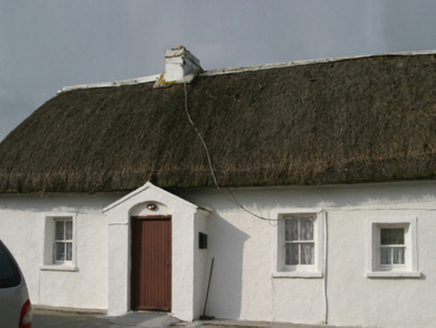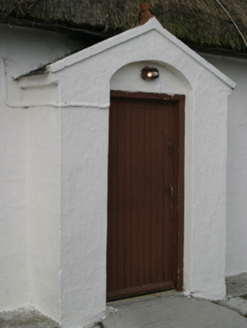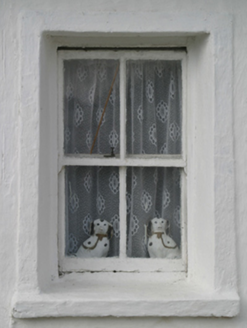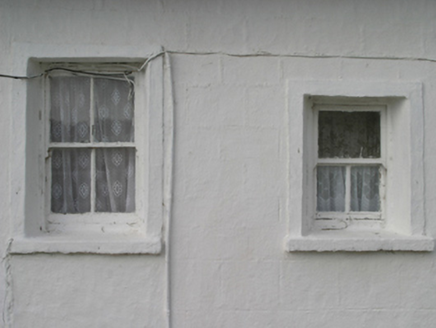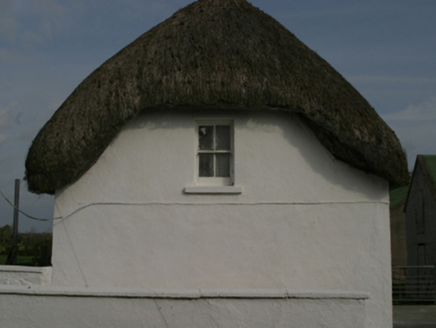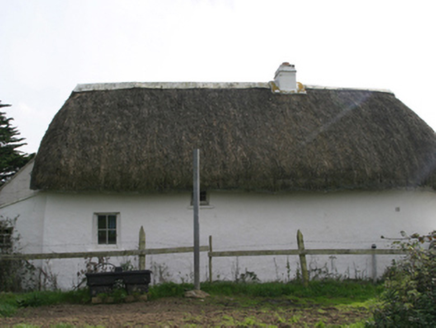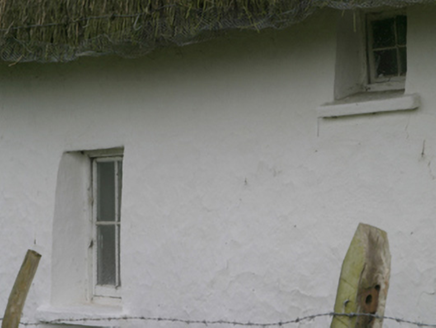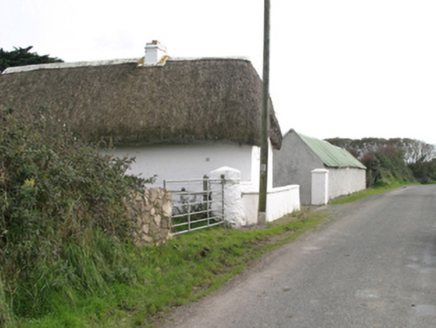Survey Data
Reg No
15704743
Rating
Regional
Categories of Special Interest
Architectural, Scientific, Social
Original Use
Farm house
In Use As
Farm house
Date
1700 - 1840
Coordinates
300412, 112398
Date Recorded
06/11/2007
Date Updated
--/--/--
Description
Detached four-bay single-storey lobby entry thatched farmhouse with dormer attic, extant 1840, on a rectangular plan off-centred on single-bay single-storey gabled windbreak. Part chicken wire-covered hipped oat thatch roof with pressed iron-covered exposed wire stretchers to ridge having exposed wire scallops, rendered dwarf chimney stack having chamfered stringcourse below capping supporting terracotta pots, and exposed wire stretchers to eaves having exposed wire scallops. Limewashed rendered, ruled and lined battered wall to front (east) elevation; limewashed rendered battered surface finish (remainder). Square-headed off-central door opening in elliptical-headed recess with concealed dressings framing timber boarded door. Square-headed window openings with limewashed sills, and rendered "bas-relief" surrounds framing two-over-two or one-over-two timber sash windows having part exposed sash boxes. Set perpendicular to road with benchmark-inscribed limewashed piers to perimeter having truncated pyramidal capping.
Appraisal
A farmhouse identified as an important component of the vernacular heritage of south County Wexford by such attributes as the alignment perpendicular to the road; the rectilinear lobby entry plan form off-centred on a characteristic windbreak; the construction in unrefined local materials displaying a pronounced battered silhouette with sections of "daub" or mud suggested by an entry in the "House and Building Return" Form of the National Census (NA 1901; NA 1911); and the high pitched roof showing an oat thatch finish. Having been well maintained, the elementary form and massing survive intact together with substantial quantities of the historic or original fabric, thus upholding the character or integrity of the composition. Furthermore, adjacent "tin roofed" outbuildings (extant 1840) continue to contribute positively to the group and setting values of a neat self-contained ensemble making a picturesque visual statement in a rural street scene.

